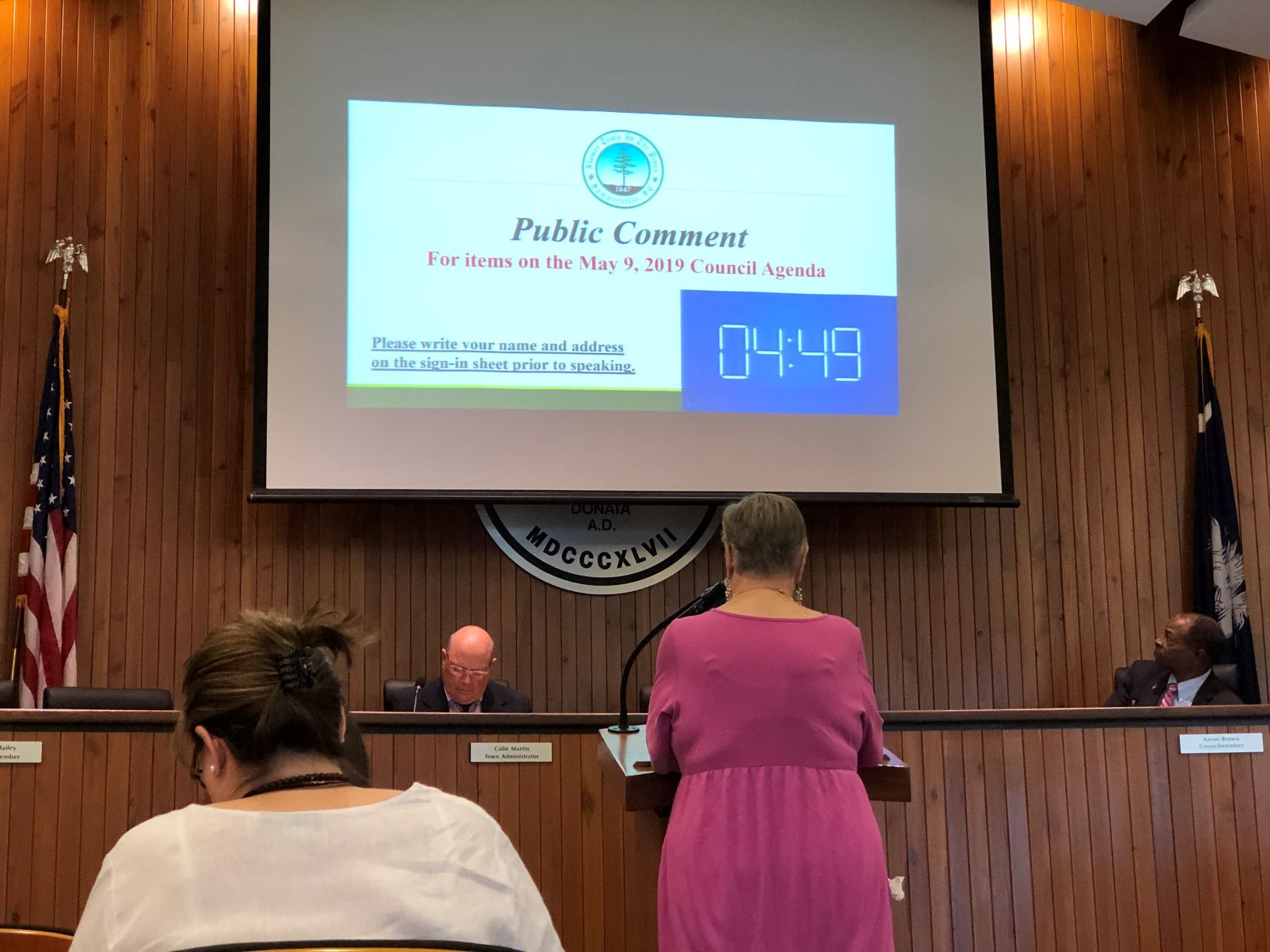Residents expect their local elected officials to be accessible. And officials are usually accessible outside of city and town council meetings, through social media, at the grocery store or at the office. However, public comment at council meetings can bring challenges to accessibility that municipalities must address.

The Town of Summerville is one of numerous municipalities to provide a timer to
show the time allotted for public comments during its town council meetings.
State law requires public hearings for purposes like budget adoption and adoption of fees, but it does not require public comments at every council meeting. Even so, many councils allow public comments through local rules of procedure or through municipal ordinance.
Speakers sometimes run on too long, behave abusively or disrupt the business meetings of the council, so rules and ordinances generally limit the time allowed, the conduct or the number of speakers. Some municipalities require signup for addressing council by a deadline before the meeting.
The City of Westminster's council meetings have public comments close to the beginning of the meeting with a notation in the agenda — those who have registered with the clerk have three minutes to speak, but this can be extended if the person speaking "is recognized in advance as representing a larger group with similar concerns." It also states that "In order to preserve the decorum of this public meeting, and to allow adequate time for discussion among the elected membership of City Council, this will be the only time we will receive unsolicited comments tonight from the public."
City Administrator Chris Carter said that residents will sometimes "want to stand up and speak after the meeting has started, not realizing the importance of preserving the decorum of a public meeting."
"I think it helps when someone tries to speak we can point out the existence of this statement [on the agenda]," he said.
In some cases, a resident making contact with city staff ahead of the meeting can allow staff to resolve his or her issue before the council meeting. For example, City of Columbia Clerk Erika Moore said, "I try to identify the [resident's] issue and work towards a resolution without him or her having to appear [at the council meeting]."
If staff doesn't resolve the issue, the city provides a sign-in sheet at council meetings for attendees who want to speak. Moore also places callers who want to speak at the meeting on the sign-in sheet. And she includes submitted letters and emails about specific agenda items in the council's meeting agenda packet.
The Town of Seabrook Island faces an interesting situation for its public hearings: its ordinances require the town to send hearing notices to property owners of record, but sixty percent of property owners live out of town, and that has led to low public participation levels at council meetings.
When the town launched a new website recently, it included a feature for residents and property owners to review pending action items and comment on them through the website, according to Town Administrator Joseph Cronin. When users enter comments, they see which body — council, board or commission — will receive them, as well as a submission deadline to make sure the comments enter the agenda packet. They're also notified that the comments will be public record and subject to potential release under the SC Freedom of Information Act.
"We see this as an effective tool to promote participation by making it more convenient for our residents and nonresidents to participate," Cronin said.
The Town of Summerville, meanwhile, is finding success regularly connecting residents with Mayor Wiley Johnson outside of council meetings. The "Chat with the Mayor" session, which takes place the day before regular council meetings, is streamed live on Facebook. Residents can ask questions in person by attending or by sending in questions through Facebook — and the videos show a steady stream of questions and comments running down the screen.
In describing the effort, Summerville Town Administrator Colin Martin pointed out that active social media engagement is something that happens with many of the town's departments as well — police, public works as well as parks and recreation.
"I believe the future of citizen engagement is taking the message and the meetings to the public," he said.
